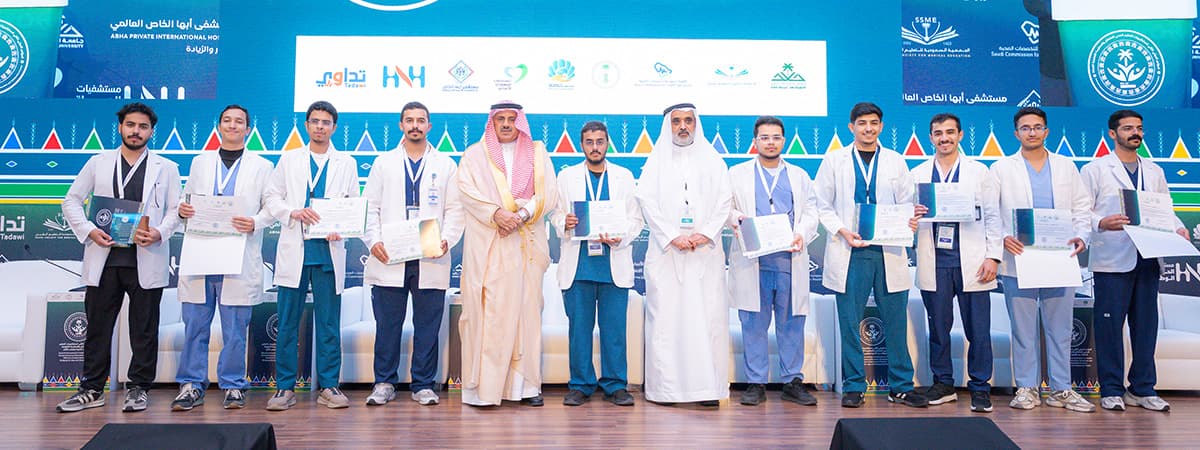Under the generous patronage of His Royal Highness Prince Turki bin Talal bin Abdulaziz, Governor of Asir Region and Chairman of its Development Authority, King Khalid University concluded the proceedings of the Second International Conference on Interprofessional Health Education Strategies and Effective Collaborative Practice. The conference was held over two days, October 22–23, 2025, under the slogan: "Bridging the Gap... Measuring the Impact," presenting over 30 scientific lectures and 4 training workshops, with the participation of more than 20 international speakers, and an attendance of 627 participants from the Kingdom, the Arab world, America, Canada, Britain, and Australia.
The conference was organized by the College of Medicine at the University, in cooperation with the Arab Network for Interprofessional Health Collaboration (ANIC) and the Saudi Society for Medical Education (SSME), with the participation of deans of colleges of medicine in the GCC countries and Saudi universities, global medical education experts, and clinical practice pioneers. The goal was to enhance interprofessional health education, improve collaborative practice, and elevate the outputs of the health and academic system.
The scientific days of the conference featured the presentation of 30 lectures across morning and evening sessions, addressing global, regional, and national themes, including: Modern Trends in Interprofessional Health Education, Governance and Accreditation in IPECP, Building Centers of Health Excellence, Regional Integration for Training Health Teams, Artificial Intelligence in Enhancing Professional Collaboration, and Curricula for Designing Educational Systems Based on the Health Team. The sessions also included scientific discussion panels and qualitative interventions from international experts, adding a practical cognitive dimension to the content presented.
The conference program included 4 specialized training workshops under the titles: "Building Centers of Excellence," "Integrating Shared Competencies into Curricula," "Qualitative Research in Interprofessional Education," and "Designing Interactive Educational Experiences Among Health Professions," offering practical models to enhance institutional and field empowerment of interprofessional education within universities and healthcare facilities.
The conference concluded by raising a set of scientific recommendations, most notably: establishing a Center of Excellence for Interprofessional Health Education, developing curricula according to the integrated education model, activating early clinical training, adopting simulation and artificial intelligence for interactive education, promoting the exchange of experiences with global centers, supporting research and innovation in health education, applying periodic curriculum evaluation, and developing sustainable training programs for faculty members in active learning and simulation.

